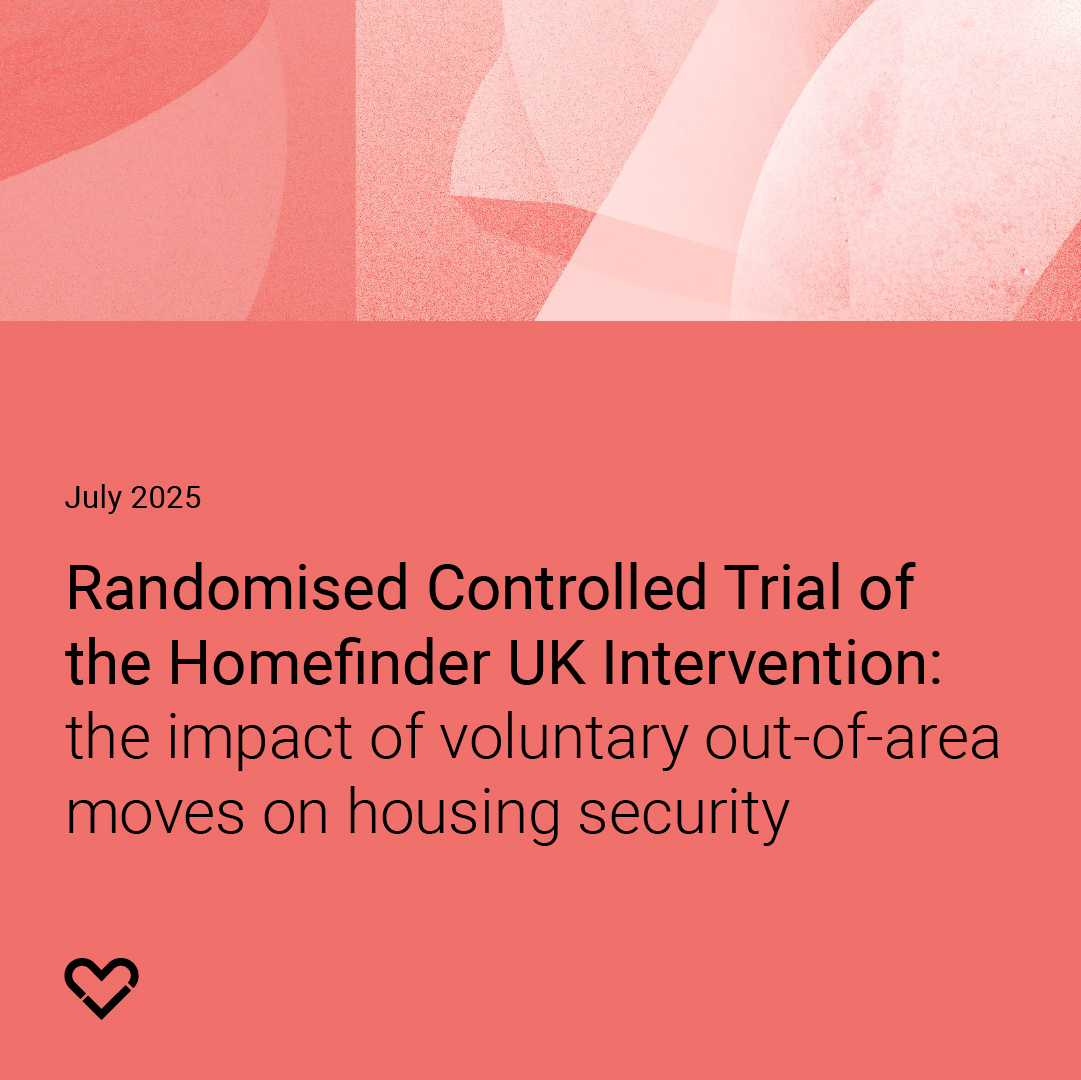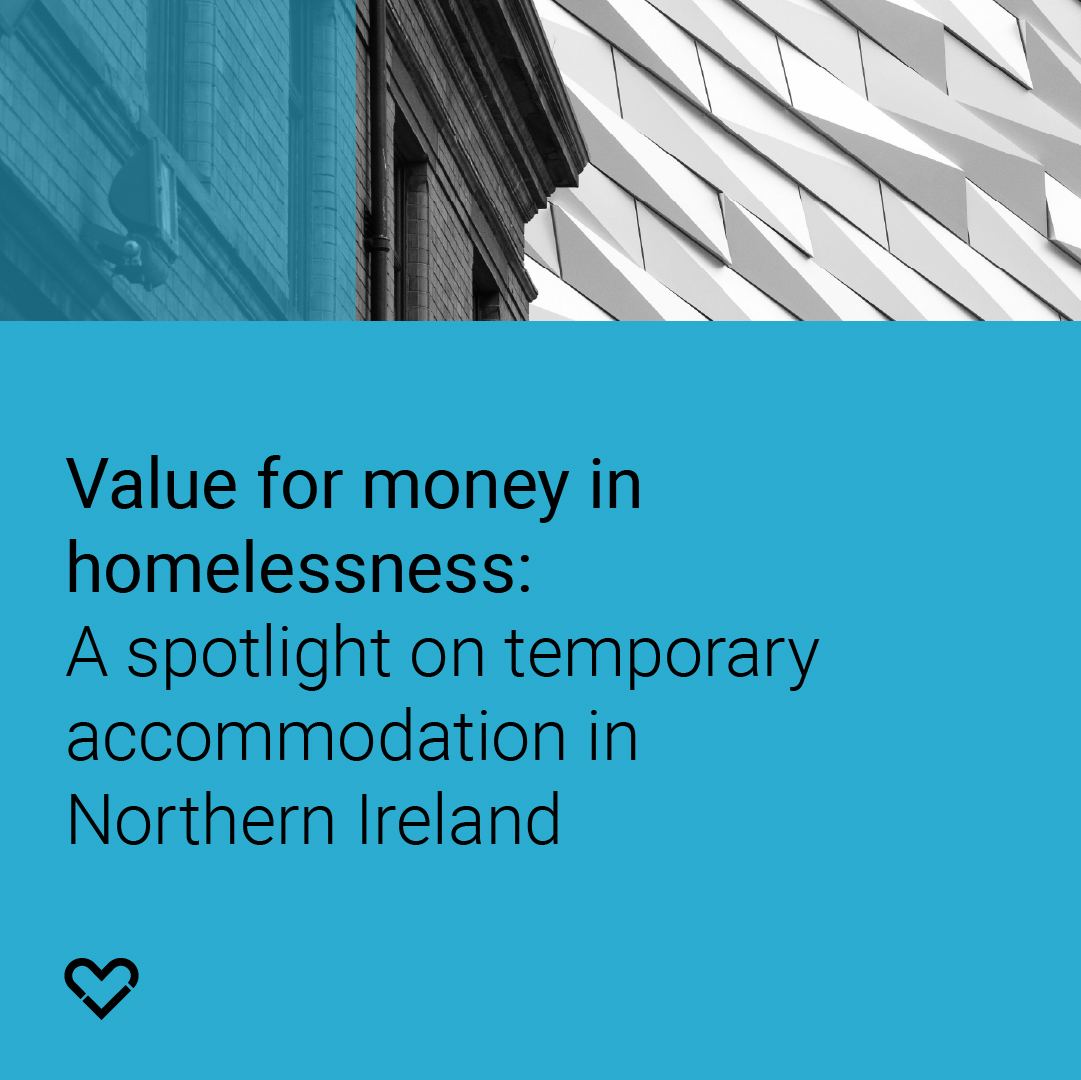Tackling Tenancy Insecurity in the Private Rented Sector
Outline of the study
This report examines how tenancy insecurity in the Private Rented Sector (PRS) contributes to homelessness across the UK, and which interventions can improve tenancy sustainment. The study reviews evidence on the drivers of tenancy failure and evaluates interventions to support tenants and landlords. It focuses on Assured Shorthold Tenancies and Section 21 'no fault' evictions as key sources of housing insecurity.
Findings in brief
- The PRS has doubled in size since the early 2000s and now houses over 4.5 million households (20% of all households). The PRS is the second most common tenure in the UK after owner-occupation, having overtaken social renting in 2011/12
- In 2021, around 30% of homelessness relief duties in England were discharged through PRS accommodation. Much bed and breakfast and other temporary accommodation is provided in the private rented sector
- Loss of PRS tenancies is now the leading cause of homelessness of people presenting to local authorities -22% of total homelessness/threatened with homelessness cases)
- Tenancy sustainment is poorer in the PRS than social housing: the average PRS lasts 4.2 years, compared to 10.8 years for social tenancies Only 47% of people moving out of homelessness into the PRS were still in this accommodation 15 - 18 months later. This compares to over 80% in social housing
- PRS renters are overwhelmingly in work. In-work poverty has risen significantly among private renters since 2000/01 - from around 20% to 30%.The poorest fifth of households are now twice as likely to be in the PRS than 20 years ago and PRS costs have risen almost half in real terms
- Households in the lowest income quartile spend 30% of income on rent for the cheapest properties. In London, this rises to 47% of income
- Many landlords are unwilling to rent to people with experience of homelessness or those receiving benefits
- Proposed legislation will remove ‘no fault evictions’ in England and Wales and provide a more protective environment for renters.
Recommendations in brief
- Address housing affordability through better housing-related benefits and increased supply of genuinely affordable housing in the right places and boosting landlord incentives to let to low-income households
- Expand mediation and legal advice services for tenants facing eviction, focusing on 'facilitative, non-confrontational' approaches
- Seek to strengthen protections against 'retaliatory evictions' for tenants who complain about property conditions
- Evaluate the effectiveness and cost-effectiveness of pre-tenancy training programmesTest landlord incentive schemes through demonstration projects, including cash upfront payments and rent guarantees, to evaluate their effectiveness and value for money
- Expand Social Lettings Agencies and address barriers to their growth
- Roll out intensive case management models, particularly Housing First, which show strong evidence of effectiveness for people experiencing multiple disadvantage
- Ensure holistic, personalised support for people experiencing homelessness and work to improve coordination between housing, health and social services
- Seek to address welfare system issues that contribute to rent arrears, including benefit administration delays
- Ensure staff are offered training around person-centred support and resilience
- Seek to incorporate peer support in support services for people experiencing homelessness, to increase engagement and tenancy support
- Invest in dedicated landlord liaison roles to act as single points of contact and resolve conflicts
- Consider offering tax breaks for landlords letting at Local Housing Allowance rates.
No items found.





.jpg)

